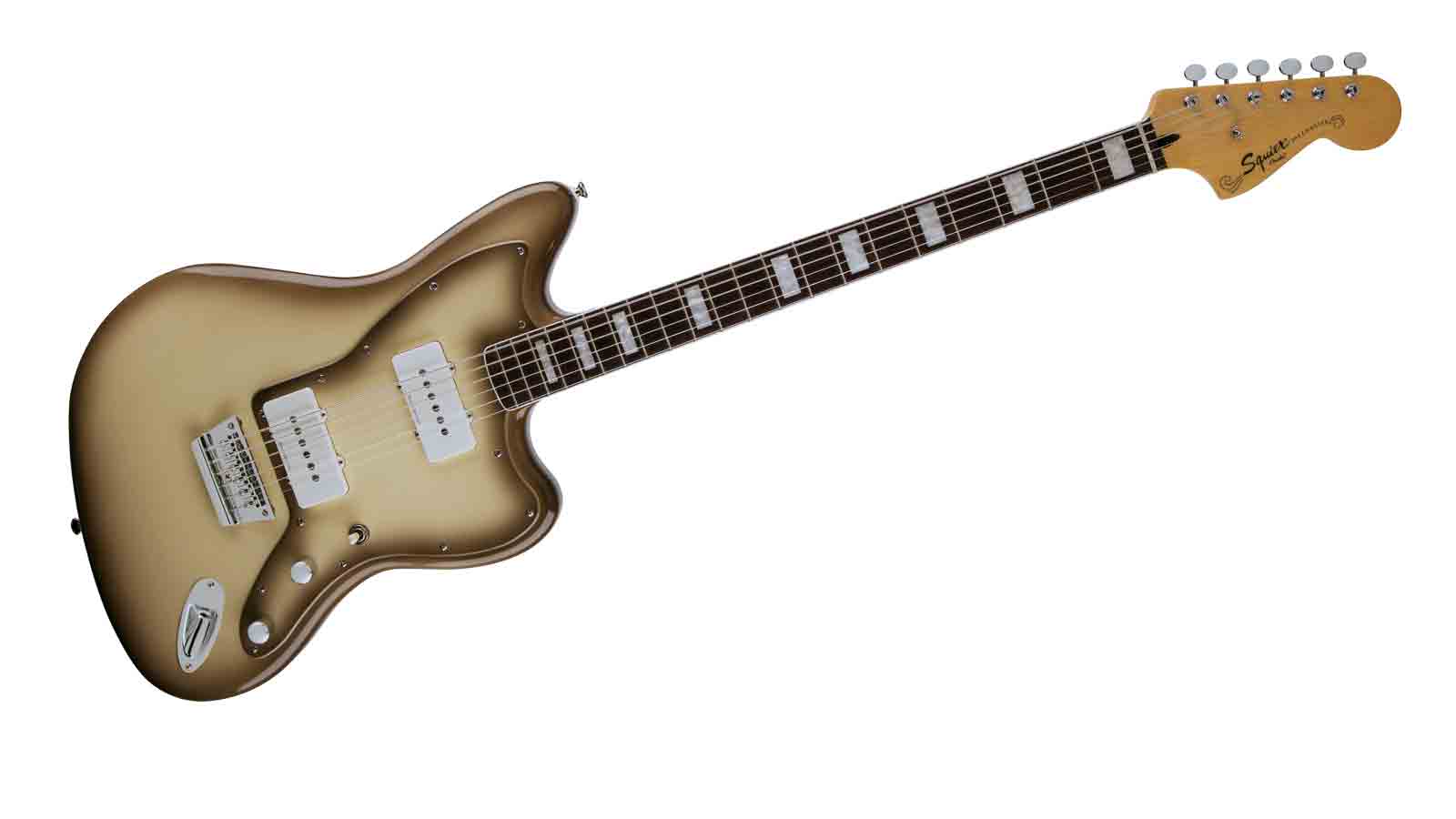MusicRadar Verdict
Considering the faultless build quality, toneful Duncan Designed pickups and reasonable street prices, you'll struggle to find a baritone that offers more for the money.
Pros
- +
60s mojo. Plays well and is one of the most stable baritones we've tried. Great with some alt-rock-style overdrive. Value for money.
Cons
- -
Not much.
MusicRadar's got your back
Judging by the sheer number we've had through our doors in the past year or so, the baritone guitar is on the rise. Although the instrument itself has been around since the 50s, its popularity has peaked and troughed over the decades.
However, with guitar-emulating bass and drum duo Royal Blood topping the album charts and flying the flag for low frequencies, the time seems right for guitarists to get down and dirty too. Squier's latest affordable offering is primed for action.
This isn't the first guitar-bass hybrid we've seen from Squier recently; the Bass VI provided us with low-end thrills one octave below, but this Vintage Modified Jazzmaster is a baritone through and through.
"We've played a lot of Squiers and a lot of baritones, and this is the perfect marriage of the two"
It's tuned A D G C E (a perfect 5th below standard guitar tuning), with a 762mm (30-inch) scale length, which makes playing one of these quite different to, say, a 686mm (27-inch) Fender Blacktop Telecaster Baritone.
30 inches is the same as a short-scale bass, which gives you an idea of what you're grappling with here; this is no conventional guitar.
However you feel about its giraffe-esque appendage, the Baritone Jazz is one suave axe. The Antigua Burst finish is divisive, sure, but the matching scratchplate, vintage-style headstock decal and block inlays give the guitar a touch of 60s mojo.
And if you can stop yourself running your hands over its sultry curves, you'll find an attractive player here, too.
Want all the hottest music and gear news, reviews, deals, features and more, direct to your inbox? Sign up here.
It's a given that the extended scale length will be a transition for most guitarists, but it also makes this Jazz one of the most stable baritones we've played; it arrived in near-perfect tuning and stayed that way throughout our testing - the Danelectro-esque bridge helps to ensure there's just the right amount of give when you whack the strings hard, too.
Like its Bass VI forebear, the Baritone Jazz is a gateway tool to new creative techniques; the lower pitch range makes you approach the instrument in a different way, and even the simplest open chords evoke a thunderous rumble, thanks in part to the Duncan Designed Jazzmaster single coils, which are the perfect enablers.
There's a shimmering, almost hi-fi quality to the neck position - add a dash of tremolo and reverb and you're in surf and western territory; if soundtracking is your game, you'll find plenty of inspiration here. The bridge, meanwhile, offers a more traditional guitar tone, with a compressed, mid-heavy sound.
It sounds tasty with amp overdrive, but feed it to some distortion, and chunky grind is your reward - ideal for post-rock crescendos and stoner drones, with huge sustain available from the heftier string gauges. But while you can play metal at a push, this guitar is best suited to alt-rock and indie players looking for ways to expand their chordal repertoire.
We've played a lot of Squiers and a lot of baritones, and the Vintage Modified Baritone Jazzmaster is the perfect marriage of the two. This 60s-inspired design just feels right, from the knurled chrome knobs to the pickup selector placement.
Mike is Editor-in-Chief of GuitarWorld.com, in addition to being an offset fiend and recovering pedal addict. He has a master's degree in journalism, and has spent the past decade writing and editing for guitar publications including MusicRadar, Total Guitar and Guitarist, as well as a decade-and-a-half performing in bands of variable genre (and quality). In his free time, you'll find him making progressive instrumental rock under the nom de plume Maebe.

